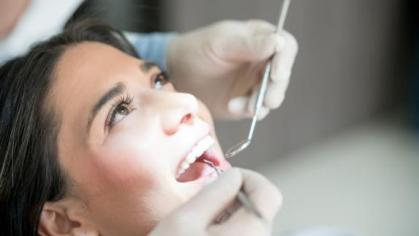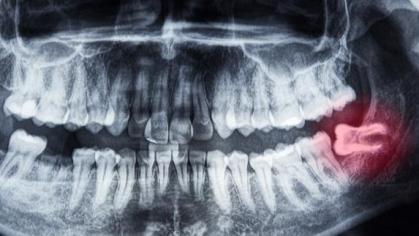How Compulsive Biting and Chewing Affects Your Oral Health
Do you bite your nails, chew gum nonstop or have other compulsive biting and chewing habits? If so, you may be causing detrimental consequences to your oral health. Here are the most common adverse effects listed by dental professionals at Rutgers Health University Dental Associates .
Consequences from Cheek and Lip Biting
Lip biting, tongue biting and cheek biting are some of the most destructive behaviors when it comes to your oral health. An estimated three percent of adults in the United States have picked up these habits, with over half of those individuals experiencing onset during childhood. In some cases, biting of the lips, tongue and cheeks is unintentional and caused by improper alignment of the teeth or jaw, but more often than not, it is a cognitive choice these individuals are making.
The repetitive biting of your lips, tongue or inside of your cheeks typically results in ulcerations, sores and infections within the oral tissue. It even leads to the development of callous-like formations of white patches, also known as keratosis. These compulsive biting habits can also cause the following:
- Canker sores
- Bleeding
- Scarring
- Trouble sleeping
- Teeth shifting depending on intensity of the bite
Effects of Biting Nails, Pens and More
It’s easy to do without even thinking about – biting your nails while lost in thought, nibbling on pens or pencils throughout the work day and chewing on other objects that are not foods. While these can be tough habits to break, your dental health depends on you kicking these habits to the side. The consequences include:
- Cracked, chipped or worn down front teeth
- Increased risk for a shortening of the roots or tooth loss in patients with braces
- Greater likelihood of developing bruxism (the unintentional grinding or clenching of teeth)
- Tooth sensitivity, recessed gums and tooth loss
- Loss of tooth enamel
- Sore, torn or damaged gum tissue
- Spread of bacteria from your mouth to other body parts or bloodstream
Chewing Gum Excessively Takes a Toll
Even if it’s sugar-free, excessive gum chewing can have dire impacts on your oral health. It can cause tooth decay and erosion, as all types of gum contain acidic added flavors and preservatives that can cause this to occur. As with all sugary snacks, you’re also at an increased risk for cavities.
If you have mercury fillings, listen up. Chewing an excessive amount of gum can put you at risk for mercury releasing from your fillings. Studies have found that chewing gum is linked to an accelerated release rate of mercury vapor from dental fillings, which then travels to other parts of your body. So every time you pop in a piece of gum, you’re infecting your bloodstream with this neurotoxin.
In addition, chewing gum can cause Temporomandibular Joint Disorder (TMJ), a painful chronic condition that occurs when you overuse a certain set of muscles – in this case, the ones you use to chew. This can result in muscle pain, headaches, earaches and toothaches. Further, if you favor one side of your mouth more than the other while chewing gum, you could wind up with a jaw muscle imbalance.
Take Action to Break These Habits
If you experience any of these conditions of excessive chewing or compulsive biting, dental professionals can help. Offering personalized oral medical care in Newark and New Brunswick, Rutgers Health University Dental Associates will play a major role in your recovery as we help you restore comfort, treat chronic chewing and biting symptoms and provide the proper treatment. To learn more, schedule an appointment today.



